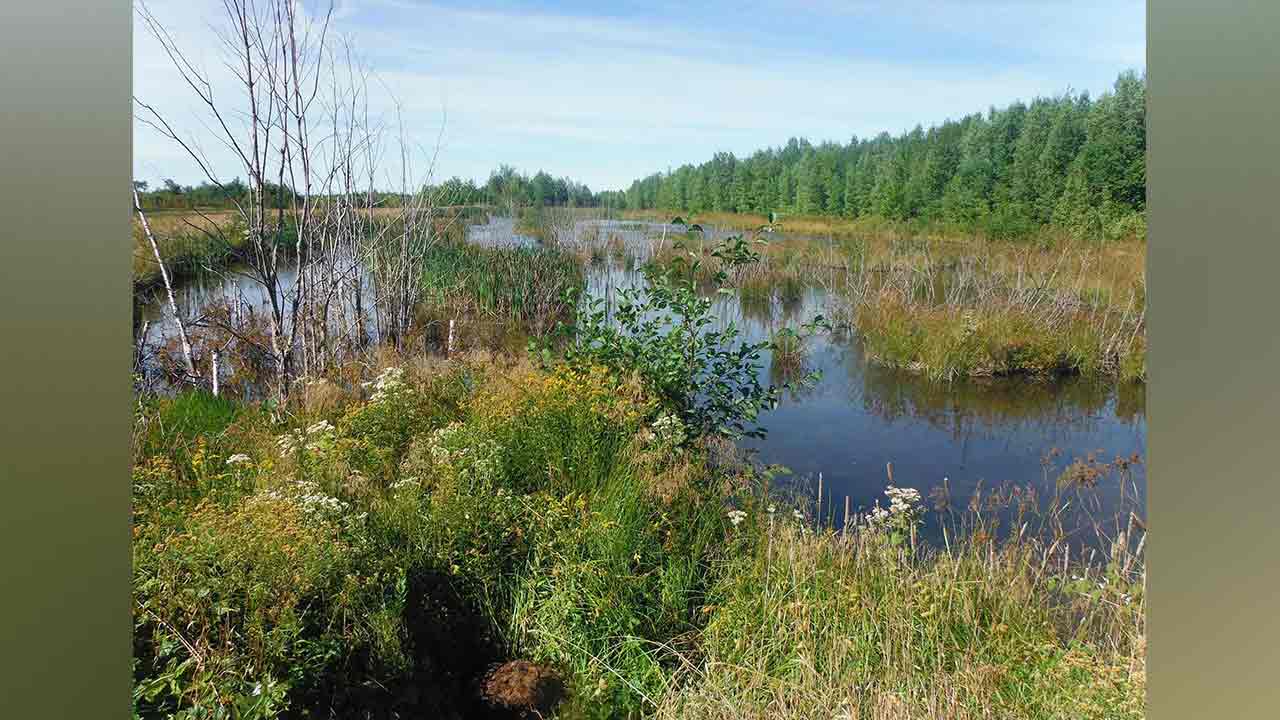Agriculture & Climate Change, Canada (Commonwealth Union) – Wetlands are areas where water is the primary factor determining the nature of the soil and the vegetation. They are some of the most biologically diverse and productive ecosystems on the planet, providing critical services such as water filtration, flood control, and carbon storage. Despite their importance, wetlands are often undervalued and degraded by human activities, leading to their decline and loss.
Wetlands come in many different forms, from marshes and swamps to bogs and fens. They are typically characterized by the presence of standing or flowing water for at least part of the year, which can range from shallow to deep and fresh to saline. Wetlands can be found on every continent except Antarctica.
Wetlands are also vital habitats for a wide range of plant and animal species. Many wetland plants are adapted to grow in water-saturated soils, and they provide important food and shelter for a variety of aquatic and terrestrial species. Wetlands are especially important breeding grounds and stopover sites for migratory birds, many of which rely on wetlands for their survival.
The significance of wetlands which are often removed without the realization of their significance was highlighted in a recent study.
With the application of satellite imagery and computer modelling, scientists from the University of Waterloo discovered that since these small wetlands are not connected, pollutants like nitrogen and phosphorous get trapped. This was the 1st study applying satellite data for nutrient retention estimation.
All wetlands serve as sponges, giving flood protection by taking in large volumes of water that can be suddenly emerge from rainfall or snow melting. The wrecking of wetlands can elevates our vulnerability to the extreme impacts of climate change, with flooding, drought and the frequency of storms, as indicated by researchers.
“This is especially a concern in regions like southern Ontario, which has already lost more than 70 per cent of its wetlands and is under threat to lose more from increasing population and developmental pressures. The rise in human population also increases the amount of pollution,” explained Dr. Nandita Basu, a professor from the University of Waterloo as well as the Canada Research Chair in Global Water Sustainability and Ecohydrology. “If pollutants aren’t caught by small wetlands, then they’ll run into our lakes, beaches and eventually impact our supply of drinking water and ability to use the beaches for recreation.”
Dr. Basu, was jointly appointed to the Department of Earth and Environmental Sciences together with the Department of Civil and Environmental Engineering at the university, who engaged with Dr. Frederick Cheng.
30 years of satellite imagery from across the USA was utilized to find out how 3,700 wetlands filled up and drained as a function of seasons and climate. This was followed by estimations on the amount of nitrogen would be taken out by these water bodies.
“Being disconnected can actually be better because they are catching the pollutants and retaining them as opposed to leaking them back to the stream waters,” added Dr. Cheng, who was 1st author of the study and presently a postdoctoral fellow at Colorado State University.
Dr. Basu and her team are to carry out these methods to Canadian wetlands across the Great Lakes basin and the prairie region in Western Canada. That work is to be partly backed by a grant from Environment and Climate Change Canada.
With the significance wetlands play in ecosystems that provide a wide range of ecological, social, and economic benefits. Despite their importance, wetlands are often undervalued and degraded by human activities. To continue the health and productivity of wetlands, public awareness plays a crucial role, hence the study is likely to further highlight its significance.











